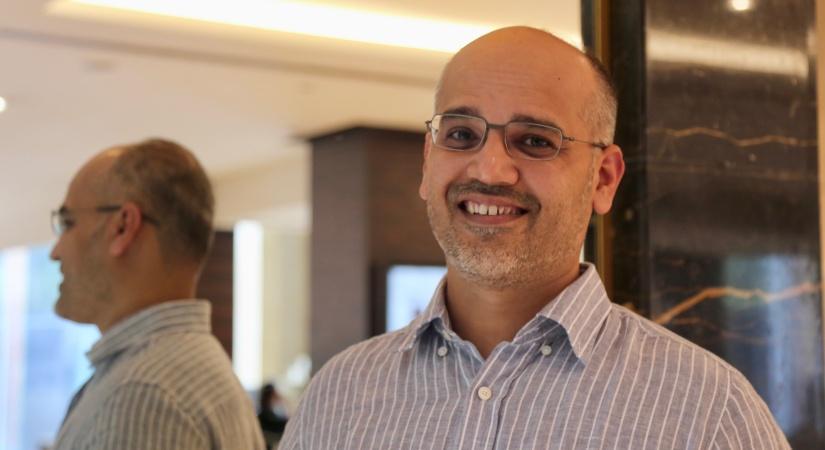What happens with documentaries often is that there is an anthropological gaze and it is mostly the intention of the filmmaker to return that gaze, something he avoided in ‘Katiyabaaz’, which also had a theatrical release…writes Sukant Deepak
Forever drawn to social themes, the director of ‘Katiyabaaz’, Fahad Mustafa is now all set to start work on his next film ‘Lalli’, which he wrote in 2018. He said that delving around “naalas” in Delhi, the film is a “meeting” between two worlds.
If you have watched the way directors Fahad Mustafa and Deepti Kakkar treated ‘Katiyabaaz’ (2013), centring around Kanpur, a city where 15-hour power cuts were a norm, and hundreds of people risk their lives to steal electricity, it would be hard to miss how different genres — documentary and fiction, come together seamlessly in each frame.
What happens with documentaries often is that there is an anthropological gaze and it is mostly the intention of the filmmaker to return that gaze, something he avoided in ‘Katiyabaaz’, which also had a theatrical release.
Speaking to IANS, Mustafa said: “We were bold enough to make it mainstream. Looking back, I do feel we were too ambitious. But it was a big learning for us. In the theatres, it did have ups and downs at the box office, However, it was shown across festivals, and educational institutions around the globe.”
“This is about a river that snakes its way through the Capital, but different elements hide it. We encounter diverse characters living around the water body. I would call it a dramatic thriller — ‘what lies beneath’. It is the story of a woman pointing to this river and exhorting people to acknowledge it. ‘Lalli’ is fiction and we have mixed genres. My set is 300 metres along the ‘naalas’, where an entire ecosystem thrives. While there is filmmaking, we want to execute it in a very interesting way,” Mustafa added while talking about his new project ‘Lalli’.
Mustafa has also made ‘FC Chechnya’, where in a small Austrian town, football helps three young Chechen refugees reconcile with traumas of the past.
Stressing that it is certain that the world had changed fundamentally for Indian independent filmmakers post-Covid, he said that while there were high expectations from OTT platforms, they also began playing safe by placing their bets on bigger production houses and well-known stars.
Conversing about contemporary documentaries being made in India, he opines that people do watch them, but the demand for fiction is extremely high.
Speaking at the recently concluded CineVesture International Film Festival (CIFF) held in Chandigarh, Mustafa said: “Fantastic documentaries are coming out of India and an infrastructure needs to be created for them from an institutional eye. In the West, there exists financial and distribution support for documentaries where independent voices can find space. In India too, the government needs to consider it seriously.”
Meanwhile, Delhi-based Sunil Kataria, who is backing ‘Laali’ said that he has always been interested in young people with different ideas.
“I want to create a movement of honest films. While I have done a lot of investments in start-ups, post-Covid, I started to look at deeper voices,” he concluded.
ALSO READ-Shekhar Kapur’s Journey Through Cinema
